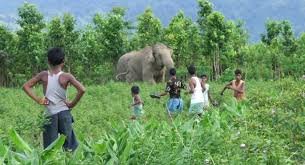
Since the 70s, there has been great concern about the emergence of emerging diseases that have strongly impacted the health status of human beings. The constant increase in cases of dengue, yellow fever, tuberculosis, malaria and the appearance of new viruses such as HIV, Hendra, SARS, bird flu and others, has been mainly due to changes in the biosphere and globalization produced by the intervention of the human being.
The advances in science and technology have had a very favorable impact for the majority of human beings, but it has also favored the appearance of new strains more virulent and resistant to antimicrobials and insecticides, due to the excessive use of them, and have contributed significantly to environmental pollution.
The increase in population, in international transport, human migrations and the excessive and unequal economic development have produced groups of people more susceptible to diseases and have created the ideal conditions for them to be transmitted more easily.
Deforestation, human settlements in new areas of tropical forests, urbanization and the disappearance of ecological niches make animals and humans come into closer contact, exposing themselves to the viral exchange between species and vectors and their viruses.
Wild animals are an integral part of the complex interrelationship between humans, animals and the health of the environment.
It has been estimated that 73% of emerging diseases are zoonoses, that is, they come from wild animal viruses that can be transmitted to humans and their animals and produce disease.
Since the social, economic and ecological changes that affect the emergence of new diseases continue to increase, and these mostly come from microorganisms typical of wild animals, it has become imperative the epidemiological surveillance of wildlife to prevent health problems public in humans.
Since a few years ago, the concept of integral health includes the health of wildlife, which demonstrates once again the interrelated and interdependent that we are living beings with our environment. This new vision is welcome, even if it starts from the anthropocentric point of view and not from a true planetary consciousness.